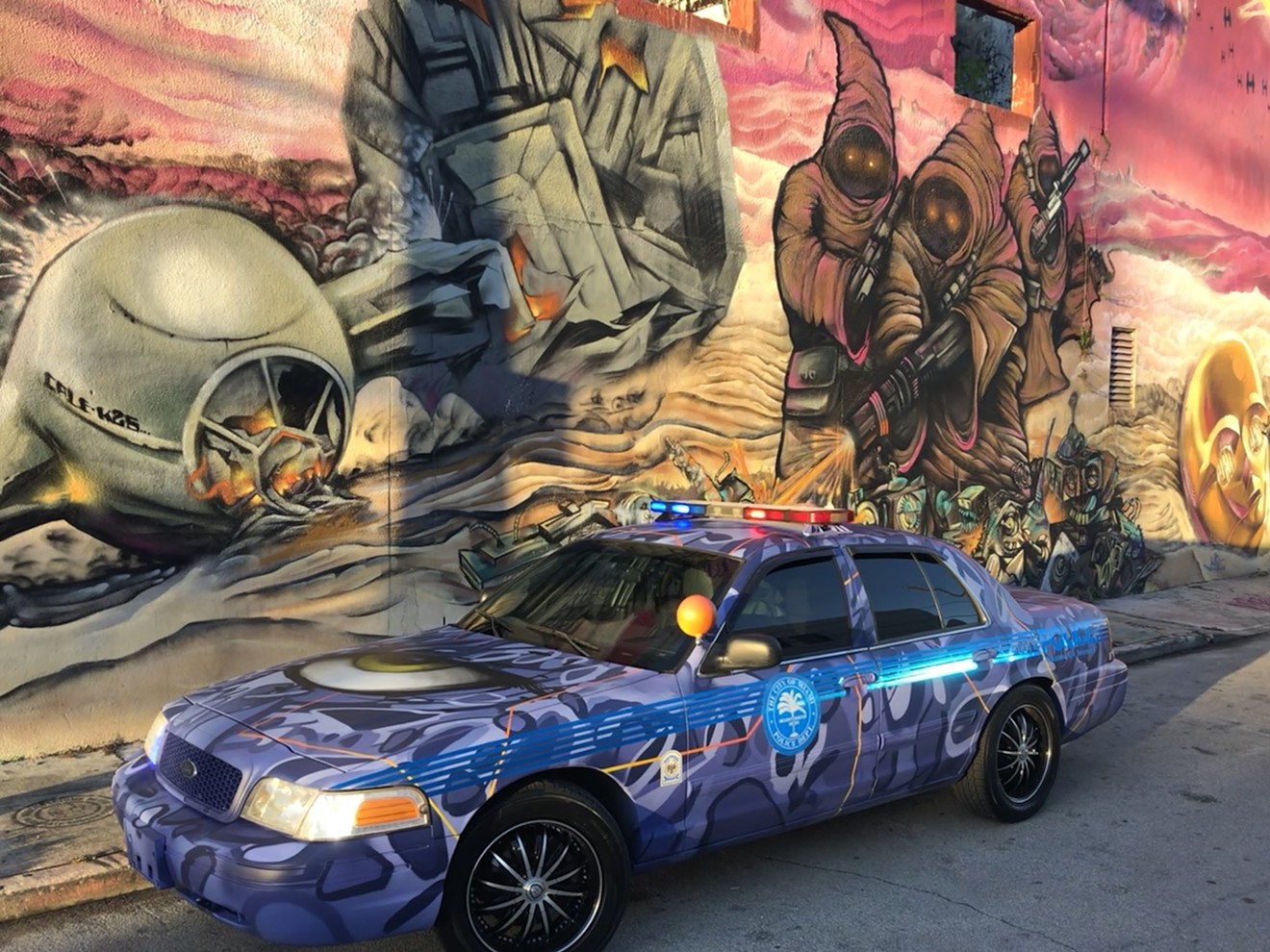Over the last handful of years, Miami Beach officials have pushed plans to blanket South Beach — South Florida's top tourist destination — with a gigantic array of security cameras and police-monitored license plate readers. Civil liberty advocates have repeatedly warned that the city appears to be creating a gigantic and potentially unnecessary surveillance network that could infringe on people's basic right to move around without being tracked at all times.
Now Wynwood, the Magic City's second-largest tourist epicenter, appears to be following suit. According to Miami City Commission documents, the Wynwood Business Improvement District (BID) — a group of local officials who approve neighborhood changes — plans to donate $181,034.37 to the Miami Police Department. If the city signs off on the deal, MPD will use that money to buy 48 new surveillance cameras and two new license plate readers to track drivers who pass through the area.
"The acceptance of this donation will be beneficial... to curtail or prevent crime in the Wynwood Business Improvement District, such as robberies, assaults, burglaries and other related offenses, which will increase public safety and the quality of life for the residents, businesses, and visitors of the City of Miami," the documents state. The commission will consider the proposal at its next meeting on July 11.
The Wynwood BID oversees an arts district that is roughly 50 blocks in size, which means if the plan is approved, the police department will be placing an average of one security camera on nearly every block in Wynwood.
Certainly, there are reasons why police officers might want more cameras in the area. Wynwood has rapidly gentrified in recent years — at the start of the decade, the area mostly comprised small, independent galleries that had moved into the former warehouse district and traditionally Puerto Rican neighborhood. Fast-forward a decade, and Wynwood is now an international tourist zone where petty property crimes (thefts and car burglaries) are higher than city and state averages.
At the same time, privacy advocates warn that surveillance technology can easily be misused if the data is stored incorrectly, improperly secured, or not governed by strict internal rules. Miami Beach, for example, scans upward of ten million license plates per year, although the department says it deletes its stored data annually. But other supposedly secure systems have been breached in recent years: Last month, U.S. Customs and Border Protection said hackers had illegally downloaded a database of about 100,000 images of cars entering and exiting the United States that had been scanned using plate-reading devices. The database, which was stolen from a government contractor named Perceptics, was then uploaded to the dark web — Motherboard reported it was able to download thousands of images of drivers' cars, license plates, and even their faces.
Closer to home, local residents have expressed concern about what other contractors may be doing with the license plate data. Coral Gables is another city that uses a relatively large network of plate-reading devices — but its contractor, Vigilant Solutions, in some cases also shares plate information with U.S. Immigration and Customs Enforcement.
[
{
"name": "Air - MediumRectangle - Inline Content - Mobile Display Size",
"component": "19274298",
"insertPoint": "2",
"requiredCountToDisplay": "2"
},{
"name": "Editor Picks",
"component": "17482312",
"insertPoint": "4",
"requiredCountToDisplay": "1"
},{
"name": "Inline Links",
"component": "18711090",
"insertPoint": "8th",
"startingPoint": 8,
"requiredCountToDisplay": "7",
"maxInsertions": 25
},{
"name": "Air - MediumRectangle - Combo - Inline Content",
"component": "17482310",
"insertPoint": "8th",
"startingPoint": 8,
"requiredCountToDisplay": "7",
"maxInsertions": 25
},{
"name": "Inline Links",
"component": "18711090",
"insertPoint": "8th",
"startingPoint": 12,
"requiredCountToDisplay": "11",
"maxInsertions": 25
},{
"name": "Air - Leaderboard Tower - Combo - Inline Content",
"component": "17482313",
"insertPoint": "8th",
"startingPoint": 12,
"requiredCountToDisplay": "11",
"maxInsertions": 25
}
]












